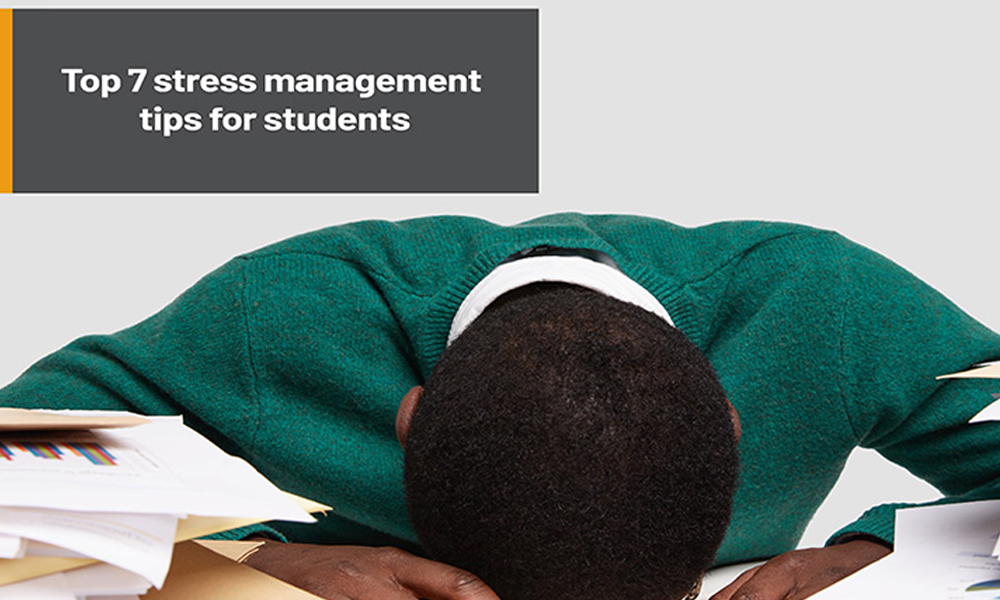
Table of Contents
What Is Stress and How Does It Affect Students?
Stress is when you feel like there’s too much going on and not enough time or energy to deal with it all. It affects students because it makes them feel overwhelmed, tired, and unhappy—and that means they can’t learn as well as they would otherwise!
Stress comes from all kinds of places: schoolwork, family obligations, social pressures, lack of sleep…the list goes on and on. And while some stress is normal and even healthy (like getting excited about an upcoming vacation!), when it starts impacting your ability to function normally in everyday life then it’s probably time to do something about it. It is a effects of stress on students
There are lots of ways of stress management techniques for students so they don’t impact your ability to get things done—from meditating regularly to scheduling in some me-time each day to talking through your problems with a friend or family member who understands what you’re going through—but the important thing is that you find what works best for you so that you can get back to doing what matters most: being the best student you can be!
Also Read: Overcoming the effects of stress on a relationship
A majority of students experience great amounts of stress which can take a toll on the mental, emotional and physical health and wellness of the students. A wide range of students are also experiencing chronic levels of stress wherein, the stress levels are exceeding their ability to cope up with the challenges of life effectively. This makes effective stress management for students a necessity. Here are some important stress management tips for students;
What Are the Causes of Stress in Students?
Stress is something that we all deal with in our lives, but it can be especially difficult when you’re a student trying to balance schoolwork with other commitments like a job or family. Nevertheless stress management in students’ life is important.
There are many factors that are the causes of stress in students; here are just a few causes of stress in students:
- Not having enough time in the day to get everything done
- Not being able to afford school or living expenses
- Having an illness or health condition that makes it difficult to attend classes or do homework
- Being lonely because no one understands what you’re going through
- Feeling like you don’t belong at college because it’s too hard or too easy for you
- Having family problems back home, like divorce or illness or you have to work study can bring effects of stress on students
- Having trouble making friends because everyone seems so cliquey or mean (or maybe you’re just not good at making friends!)
- Not knowing where you want your future career path to go; this can cause anxiety about whether you should even be in school right now!
Improve your sleep routine

Students are often missing out on the right hours of sleep and are operating in a perpetually sleep-deprived condition. This leads to a lack of productivity and difficulty in learning. Therefore, it is important to stop neglecting sleep and aim on getting a minimum of 8 hours of sleep each day.
Consistency in exercising

It is important to be consistent in exercising and practicing some form of physical activity each day since it is considered as one of the healthiest ways to get relieved from stress. Students can practice yoga on a daily basis or try other more sustainable activities like biking. If a student takes up these activities early in their lives and continues to practice them, it can help release stress and live a longer and healthier life.
Listening to music

Listening to music is considered to be one of the most convenient stress relievers that also has proven to show multiple cognitive benefits. It can help students remain calm and relax one’s mind in what seem to be difficult situations.
Getting organized and working on time-management skills

An unorganized environment and clutter can cause the stress levels to rise incredibly and decrease productivity. A number of students these days ignore the importance of organized surroundings for better productivity and improved focus. One way to do this is to keep your surroundings minimalistic, free of clutter and distractions. This not only helps reduce the stress levels but also helps save time to focus on the more important aspects of students’ life. Getting more organized is an effort that is worth making to promote positivity and get motivated to study and perform better.
A healthy dietary intake

A healthy diet contributes greatly to making a student’s thinking and processing ability more robust. A healthy and balanced diet can therefore function both as a technique for effective management of stress and aids more focused studying.
Optimism

The students who are optimistic in life have better experiences in life because of their ability to think positively and create better circumstances in life. An optimistic approach towards life can promote improved health, happier relationships and better grades. A student must learn to train their brains for an optimistic self-talk on a daily basis and visualize a brighter future for themselves.
Effective breathing

A quick yet effective way to calm down is to practice deep breathing exercises. A student must spare a few minutes of their daily routine and practice deep breathing exercises to help relieve stress, reduce anxiety and focus better on studies.
Also Read: Good Stress Vs Bad Stress
Conclusion
Addressing ways to effectively manage stress is important and a greater number of students today are starting to realise the need for finding ways to relieve stress and improve their overall health. Weljii’s health and wellness certification program proves to be a boon for students to help acknowledge and implement effective ways to cope up with stress and practice holistic wellness for a brighter future.


